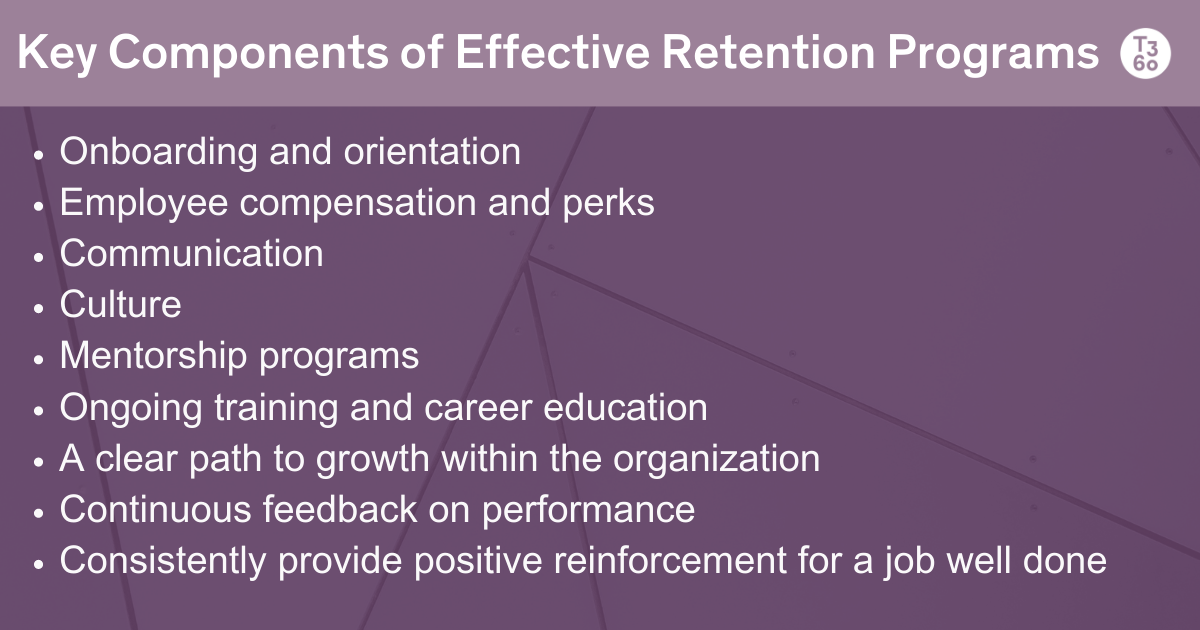Thriving in a Down Market through Retention
Dan Breault
In the real estate industry, a lot of time is spent talking about recruiting strategies. Retention is often a secondary priority, put on the back burner until companies begin experiencing high levels of attrition.
But the truth is that retaining talent is just as important as motivating and attracting it – maybe even more important! In a down market especially, investment in retaining human capital provides the foundation for future growth and opportunity.
Employees are smart enough to understand when times are getting tough, and their resulting anxiety can lead to uncertainty about their futures and their value. When a company remains loyal during tough times, a deeper sense of trust forms on both sides. From that trust come competitive advantages. It may be new, innovative ideas from highly supported (and motivated) employees, or higher agent productivity levels at a time when production and confidence could plummet.
By focusing on growth among existing employees and agents, rather than employee or agent count, companies can often bolster their profitability, improve company culture, and come out of a downturn stronger than ever.
This will not happen automatically. It’s up to company leaders to find budget and resources to set up an effective retention program, and to work with managers to develop measurable goals they can track. While company leaders have a lot of priorities in a down market, culture-building and effective retention must remain near the top of their list.
Setting up an effective retention program

The end goal of a retention program cannot only be to keep employees at the company. It must also be to help employees and agents feel valued and engaged, and to share with them the exact path they can follow to grow within the organization.
What to focus on in a retention program
Keep in mind that top talent regularly receives recruiting calls or messages on LinkedIn and other platforms, so here are a few ways to combat those pressures and promises.
Identify a clear growth path. Show employees and/or agents that if they succeed in their current role, there will be future growth opportunities. Then tell them exactly what they need to achieve to reach that next level.
Promote from within. Create a succession plan by looking at the company’s 1-year and 3-year plans. Determine what new or elevated roles will open up if company goals are achieved, and look around to determine the employee or agent who may be the best fit. Then help that person develop the skills and confidence to take on that role when the time comes.
Analyze your compensation. Use online resources to regularly assess the compensation per role. If hiring someone into a job that already exists in the organization, review the compensation before posting the job description. Is it up to market standards? Are adjustments required? Is this role becoming harder to fill, meaning higher compensation may be necessary?
Reassess your benefits. Remember, benefits are not always concrete items like health insurance. Consider soft benefits that are attractive to employees such as a gym, extra time off, a fun work environment, a discretionary budget for educational opportunities, company retreats for team building and brainstorming, etc.
Use core values to make decisions. Look at the defining company documents – mission and vision statements or stated company values – to help guide the decision making and retention program setup. The only thing worse than no retention plan is one that is developed without consideration for how the company truly operates and what its long-term goals are.
Create a two-way street for conversation. Remember to seek out feedback from employees and/or agents who are going through the retention program. This can help identify what is most important to them in their career – and help them achieve it. In some cases, they may simply need more money. But in many cases, kindness, concern, real care and a sense of teamwork may supersede a better monetary offer.
Getting started
Many companies ignore the conversation about retention entirely, so this exercise may not come naturally at first. But when companies decide to prioritize employees over unknown, untested new talent, new growth opportunities for everyone can come to light.
To discuss your hiring, retention or job search needs, contact T3 Talent.
Contact Us
Please fill out the form below and we'll respond as soon as possible.